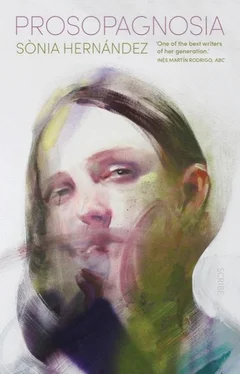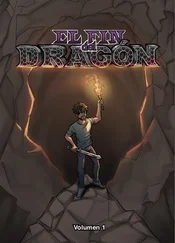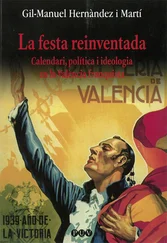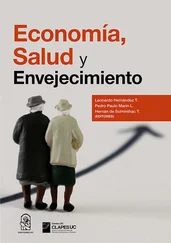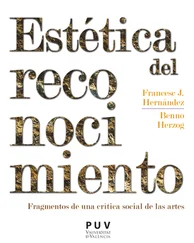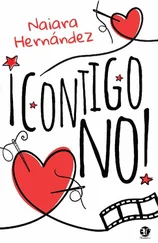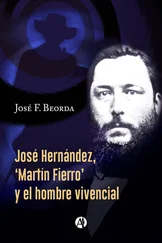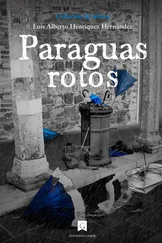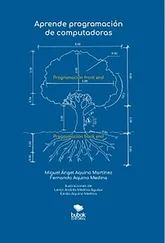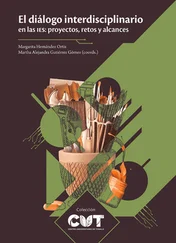‘Berta, I don’t understand. I don’t understand anything at all.’
She got up from the sofa and came over to me. She hugged me, and I wasn’t sure if she seeking consolation, or offering it.
‘I know, Mum. I know. But it doesn’t matter.’
Intellectuals have an obligation to denounce abuses of power and every element of society whose purpose is not in line with the struggle towards the collective good. Good artists are considered as such because they place otherwise hidden truths before the eyes of other human beings. The purpose of journalism is to show the population the greatest number of events possible so that we can be aware of just how much is going on in the world we live in. Then we can understand that each and every one of these events affects us directly, some way or another. The intellectual, the artist, and the journalist have a responsibility to the society in which they live. This is a responsibility they cannot shirk. We spent many hours discussing this and other similar themes in my last class at university. I have to say they always seemed like very abstract topics that had little to do with my daily life. On the other hand, there were other students who engaged in the conversation with true fervour. They were convinced that those of us gathered there at the university had, or one day would have, a responsibility to our society. At the end of the day, the State had spent a lot of money building universities and paying professors and lecturers to instruct us on how to build a better nation: one that was more advanced, more supportive, more egalitarian, more cultured, more conscious… In those discussions, my classmates took each other on, brandishing their enthusiastic idealism at our cynical professors who told us that in a best-case scenario, once we left the university with our degrees, we might find a job in a media outlet where our role would be to replicate messages of power. As for me, I was incapable of joining either side of the argument, simply because I was unable to see that every event happening anywhere in the world was directly related to my life, which I felt was circumscribed with much closer and more immediate boundaries.
I was thinking about all of this on the last afternoon I met up with the man who thought he was Vicente Rojo. It had been very difficult to secure this last interview. For several days, the artist had ignored my calls, and I thought that perhaps he, too, had realised that once his sham was discovered, the best thing would be to blow up any bridges that linked us. He must have been thinking that I knew about his absurd lies, which is why it would be so uncomfortable to have to talk to me, because I’d probably demand an explanation for everything that had happened. All in all, I think I deserved one. When I was about to give up on the idea of talking with him again, Berta asked me to keep trying. In another absurd twist of events, now it was she who needed that man.
Finally, I reached him on the phone. I thought I could detect impatience in his voice. We made no mention of our previous interviews, or of my supposed interest in writing an article about him. I told him I needed to speak to him about something related to my daughter’s school. We set a time and place, and that was the end of the conversation. He would meet me two days later, in the late afternoon, in his studio.
It was a gloriously sunny afternoon. I left home a few hours earlier than the time I’d agreed upon with the man who thought he was Vicente Rojo, because I wanted to take a walk and think about what I was going to say. But the only thing I remember is that I spent a lot of time in a café close to his studio. I was going over all the notes that I had taken in our previous meetings. I thought that I truly must not have been as smart as I had thought I was in other moments of my life, or that there must be something seriously wrong with my brain if I had never realised that, throughout all the conversations we held, that man had limited himself to reciting fragments he had memorised from books written by the real Vicente Rojo, especially from his Open Diary . It ought to have been very easy to catch on to what was happening. I should never have wasted so much time, I should never have called Isabel to propose working together on something that turned out to be such a nightmare, and I should never have told him so many things about my life. This last point didn’t just make me uncomfortable, it made me furious. Having been fooled by his absurd game and giving him access to my most personal thoughts put me in a very disadvantaged position. His idea of me must surely now be as terrible as my own.
I had also been on the cusp of giving Isabel, who was clearly still important to me, good reason to think I was an idiot. If I ended up having to tell her that I couldn’t write the article about Vicente Rojo’s visit to our city, she’d surely want to know why, and I had no idea how to tell her without making an absolute fool of myself. There was the option of waiting for her to grow tired of my lack of response, letting things slide until the artist’s presence was eclipsed by some other piece of news that the paper would consider more interesting. These things happen all the time in the media. All the same, I couldn’t let go of my feelings of anxiety, and I had that recurring thought again: a downward spiral that began by disappointing Isabel, a disappointment that kept growing until the whole world knew I was a fake who could never be a journalist, much less an intellectual engaged with society. I didn’t even deserve a place in that society, so the only answer was to push me out beyond the borders, out of the world itself. If I didn’t send Isabel anything, then at last the ending I had always been waiting for, that I had always felt was so near, would finally arrive. I could be found out at any moment; the abyss had always been right next to me. And if at last the possibility or the illusion of a woman capable of writing an article about Vicente Rojo disappeared completely, everything would stop making sense, because all that would be left would be a fat forty-three-year-old who spends eight hours a day writing and sending out press releases about new insurance policies and who understands nothing. Letting go of the possibility of publishing the article would be like accepting that it is impossible to have an ibis at home.
Perhaps because I was resisting coming to terms with all this, when I was about to leave the café to go to my last interview with the artist who thought he was Vicente Rojo — and I thought I could hear Isabel’s raucous cackling and the murmurs of mass disdain that would greet my failure — I managed to hear the musicality of the strong and blinding language with which I had to compose my article about Vicente Rojo. The written lines could indeed form paragraphs as beautiful as the straight lines of his paintings that depicted the rain over Mexico.
The night before my last interview with the artist, I had dreamt that I was in a large room in a charming house decorated with rugs, books, artworks, and sophisticated handicrafts full of beauty and ancient messages. You entered the room I was in through various doors placed asymmetrically on the walls, which indicated the existence of a great many other rooms. You could also intuit the existence of a sunny patio that, without a doubt, would be one of the major attractions of this house, which was situated in the upscale Mexican neighbourhood of Coyoacán. In my dream I knew all of this because it was not my first time here. On many previous occasions I had attended this literary salon with Fernando Benítez, Federico Álvarez, Carlos Monsiváis, Max Aub, Juan García Ponce, Sergio Pitol, Enrique Vila-Matas, José María Espinasa, Chico Magaña, Pedro Serrano, Jusep Torres Campalans, Juan Antonio Masoliver when he travelled from London, and Bárbara Jacobs when her obligations at the Hotel Poe permitted her. While I write this, I feel I should describe my presence there like Alice’s in Wonderland. The person I was in this dream moved about with the same strange familiarity and assuredness as Alice Liddell in the outlandish scenarios she found herself in. Despite all this, I clearly remember how García Ponce was arguing with Torres Campalans about the importance of abstract art. The painter from Mollerussa made gestures of arrogant impatience while his interlocutor repeated for the thousandth time how abstract art gives form to the invisible, about how artists drift from reality, paradoxically, to immerse themselves in it, to search for what is not in plain sight and give shape to it. Torres Campalans interrupted him and said that the only interesting abstract art is the work made by his friend Pablo, and that all other painters, following the failure of cubism, should spare us their arrogant rubbish. With his measured but firm voice, Vicente Rojo came to the defence of abstract art. He didn’t want to annoy Jusep Torres Campalans, but he also didn’t want to let the conversation slide into the absurd and impossible tangents that so delight the Catalan painter. If things kept on that way, Max Aub would end up insisting on some kind of word game that would put an end to all conversation. This is why Vicente Rojo said that Mexican muralism provided great works of art that are essential to all human beings, but that doesn’t mean, by any account, that it was the only valid form of art from Mexico. There were many abstract artists whose work has helped the thought and culture of Mexico and the world move forward. Masoliver took advantage of a pause from Vicente Rojo to say that although he was tremendously bored by this debate about the importance of realist and abstract art, surrealist or symbolic art, James Joyce was a realist, despite the fact that there have been so many absurd theories written about his work. Realism is very limited, Masoliver repeated several times, the function of art cannot only be to faithfully reproduce what we see, above all because what we see is barely ever interesting enough to be reproduced infinitely. This is why he was defending Joyce’s realism. Obviously, Joyce was writing about a real Ireland, the Dublin he knew so well and where he suffered so much, but he didn’t limit himself to reproducing what he saw. Masoliver’s voice grew deeper and stronger when someone, maybe it was Bárbara Jacobs, said that the Anglo-Saxon literary tradition is very realist. It’s not just that, he said, but as readers, Anglo-Saxons aren’t at all prepared for literature that is abstract or intellectual. Masoliver begged his fellow guests not to talk about metaliterature. Enrique Vila-Matas said that metaliterature, like autofiction, does not exist; a comment that Chema Espinasa celebrated with raucous applause, while he asked to speak about exile, because he still had a lot to say about his grandfather, who was a Republican mayor in a little town near Barcelona, in Montcada i Reixac. But then Chema Espinasa contradicted himself and said that he’d rather talk about poetry, which was seconded by Chico Magaña, who had left a few copies of the latest book published by his delightful press, Monte Carmelo, on the table. They caught the eye of several of the salon members, like Sergio Pitol, who caressed the cover elegantly before opening the book. Pedro Serrano came over to admire the book’s beauty as well, and then mentioned an article he’d published in his journal Cartapacios about Magaña’s editions. In the dream I felt that some of the words being said were addressed to me, and it was my turn to say something. My voice came out clearly, without trembling. It was my turn to participate in the salon and my fellow guests looked at me with interest. So, I gave my speech, in language that was absolutely impossible to understand. I spoke like those characters in Charlie Chaplin films who make noises that sound like they might be words. In my dream, no one realised that even though my speech carried on for a long time, I never spoke a single world. No one, not even me.
Читать дальше
